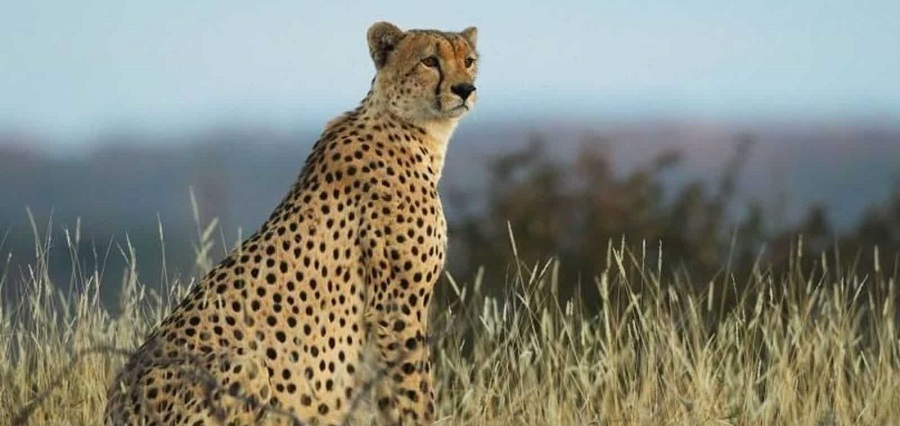Nestled between rocky and relentless topography, Kuno National Park lies in the Vindhyan Hills of Central India and is full of ancient structures and forts which have now been reclaimed by the forest. In Madhya Pradesh’s Sheopur, the Kuno National Park is the new home for the eight African Cheetahs brought from Namibia. There are no human settlements on KNU, which may be the reason it was chosen to be the new home for the spotted cats.
Found to be the most appropriate site for spotted cats based on its shape, area, and vegetation, Kuno-Palpur National Park is the most suitable. In Chhattisgarh, the last wild Asiatic cheetahs were last spotted in the Sal forest in Koriya, close to the KNU.
Sources also confirmed that several sites were considered for the project a decade ago, across Rajasthan, Chhattisgarh, Gujarat, Madhya Pradesh, and Uttar Pradesh. Experts also considered 10 sites for the project in the mentioned states between 2010 and 2012. In 1952, cheetahs were declared extinct in the country because the last of the big cats were killed around 70 years ago in India.
Suitable Vegetation
After the assessment by the Wildlife Institute of India and Wildlife Trust of India, the Kuno National Park was found to be the most suitable for the Cheetahs due to the reasons like prey densities, climatic conditions, and predator population. Derived from the name of the river Kuno which passes through the park.
Also, some of the grasslands are even bigger than most of those in Bandhavgarh and Kanha Tiger Reserve. Commenced as a sanctuary of about 350 sq. km, the area was later declared a National Park. Known for its rich biodiversity and compatible vegetation, Kuno National Park is an ideal environment for hosting the three competing predators namely, Lion, Tiger, and Cheetah.
Dislocation of Villages
Around 24 villages were dislocated outside the sanctuary and approximately 6258 hectares of land were made available between the years 1998 to 2003. This move was made since the area was found to be the most suitable location for reintroducing Asiatic Lions.
From Sanctuary to National Park
In the Central Indian Landscape, Kuno Sanctuary has been upgraded to Kuno National Park, highlighting its importance in the field of conservation of wildlife.

